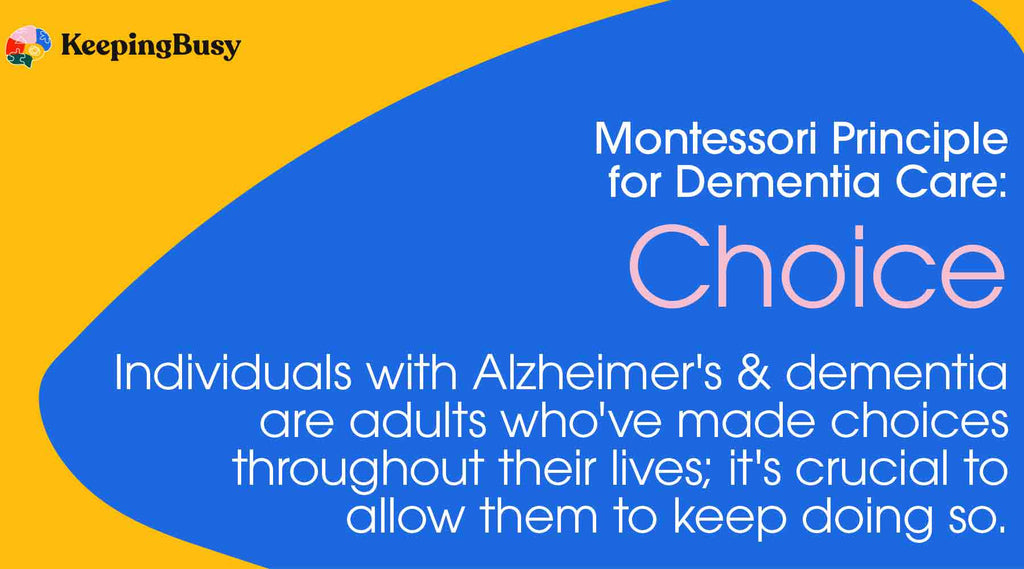
This is one in a series of posts describing the ten Montessori Principles for dementia care. Click here for the first post in the series
Choice is tied closely to the first Montessori principle of independence. A large part of being independent is having the ability to make choices - if a person can’t choose then there is no independence. As adults, we make choices every day of our lives. What clothes to wear, what to eat for lunch, what activities to participate in.
People with Alzheimer's and dementia are also adults and have been making choices all their lives and it is important that they continue to be allowed to do so. It adds to their self-esteem and allows them to feel more in control of their lives.
Unfortunately, as the dementia progresses it becomes more difficult for the dementia patients to make good choices and it is up to us as memory care caregivers to help them. It often seems that the person can’t make a decision at all, but that may be because of the way the choice is offered. Depending on the abilities of the person, asking them to select one shirt and one pair of pants rather than asking them what they would like to wear may be enough to help them make a decision. For someone else, you may have to lay out only two shirts and ask them which they would prefer. Similarly, a person with more abilities may be able to choose which Sequenced Jigsaw Puzzle they would like to do out of the sixteen possible choices, but for someone with less ability it is best to show them two puzzles (which you have pre-selected based on the interests of the person) and ask them which they would like to work on.
Make it easy for the person with dementia to make a decision.
Read the "Popsicle Story"
The same applies to questions. Rather than asking open ended questions, ask a question with only two answers. For example, rather than asking “What would you like to eat?”, ask “Would you like a banana or a yogurt?”. Rather than asking “What is your brother’s name?”, ask “Is your brother’s name John?”. Make it easy.
One of the signatures of the Montessori approach to dementia care is to always invite someone to participate rather than demand their participation. Ask them to join you or help you. Take care in asking the question in a way that encourages them to say yes, but always leave them with the choice to say no. “I’m having trouble sorting these cards, would you like to help me?”, “Would you like to join me at the table to help me with this puzzle?”. These are the hallmarks of a Montessori approach to Alzheimer care.




